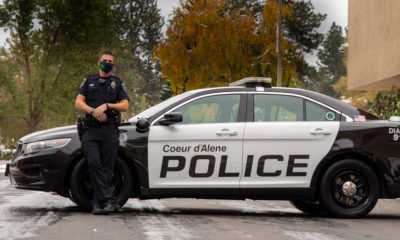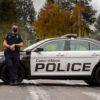Student services has started to prepare for the passing of the newly-introduced state senate bill by discussing possible options for changes in NIC security.
Senate Bill 1254, introduced earlier this year, will allow the carrying of firearms on college campuses by holders of Idaho’s enhanced concealed weapons permit and retired law enforcement officers.
“It is probably going to pass, it just has to go to the house and the house has already passed it previously three years ago,” Director of Student Services Alex Harris said.
Harris is meeting with the other leaders in student services from other Idaho institutions next week to discuss what will happen next.
With the expectations that the Senate Bill 1254 will pass, the question of whether or not NIC will need to arm security or perhaps involve the police on campus has been raised.
With declining enrollment at NIC it will be a challenge to balance in a more enhanced campus security with limited funds. The changes made in security could end up costing the college anywhere from $150,000 to over half a million dollars Harris said.
“When this bill passes there will be a significant financial impact which will either be passed on to the students in tuition and fees, or passed onto the community in property taxes, or tried to pass onto the state if they will budget us more money,” Harris said.
Senate Bill 1254 does not state that there will be any financial impact fiscally when it passes, but the college institutions in Idaho disagree. Harris said that the financial burden will likely fall to the students that attend NIC in tuition and fees.
“Could the state come up with money to do that? Maybe, but I doubt it, because the bill says there is no financial impact whatsoever,” Harris said.
College presidents in Idaho got together before the bill was introduced and unanimously came out against it, but it is still moving forward.
Idaho’s chief of police also came out against the bill because he does not think that it would make college campuses in Idaho safer.
Currently there are six states in the United States that have some sort of legislation which allows students to carry concealed weapons on campus.
Utah and Colorado are the only two that have something similar to Senate Bill 1254. The other four states with similar legislation have been able to find loop holes that have allowed them keep a majority of guns off of their college campuses.
NIC reached out to Salt Lake Community College to discuss their security policies, and Utah’s security is contracted with the state and provided by the state police.
“It is all a lot of money,” Harris said.
Harris said that for NIC to involve state police on campus it would cost NIC around half a million.
“What happens if we don’t have that money? Sometimes we don’t have the money,” Harris said. “Ultimately our number one priority is to make this the safest place possible for students, and equal to that the safest place possible for employees.”
If the bill passes it will go into effect July 1st. Harris said that this deadline does not give NIC very much time to make security preparations.
“Our understanding is that it will become active July 1, so we would have between whenever the law passes and July 1 to take our policy through the processes of being revised so it’s compliant with the law,” Graydon Stanley, vice president for student services said.
In the near future NIC will be testing an emergency notification system for every classroom and for office computers that has the ability notify NIC students and employees in the case of an emergency.
The emergency notification could be activated from within a classroom or within an office, and it will go out to all the appropriate people on campus. The notification system also has the ability to give instructions about what the students and staff should do in a specific emergency situation.
“If there’s an active shooter, for example, my screen would all of a sudden start blowing up saying there’s an active shooter in this building, “shelter in place.” Go to the parking lot, turn out the lights, whatever the instructions are, would take over my computer and everyone else’s computers with that notification,” Stanley said.
The system for the computers screens will be tested sometime in the next two weeks.















